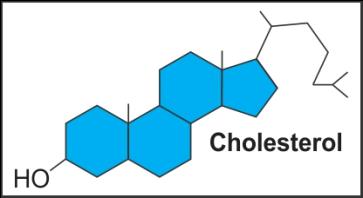© The Village Pharmacy 2021, All Rights Reserved.






Full Blood Lipid Test.
Why should I get a cholesterol test?
Cholesterol is a type of blood fat (lipid). We all need some cholesterol in our blood to stay healthy, but too much can lead to serious health problems in the future, including heart attacks and strokes.
Anyone can have high cholesterol – even if you are young, slim, eat well and exercise. That’s because high cholesterol can be caused by different things. It can be caused by an unhealthy lifestyle, but it can be genetic too.
High cholesterol is very common, but most people don't know they have it because it doesn't usually have any symptoms.
Another type of blood fat called triglycerides can also become raised and lead to health problems.
Total cholesterol
This is sometimes written as 'serum cholesterol' or 'TC' and refers to the overall level of cholesterol. But it’s not just the total cholesterol that’s important.
HDL cholesterol
Your HDL cholesterol (high density lipoprotein, or 'good' cholesterol) helps clear the cholesterol out of your arteries, while your LDL cholesterol (low density lipoprotein, or 'bad' cholesterol) can clog them up. So your HDL cholesterol should be above 1mmol/L in men and above 1.2mmol/L in women, ideally around 1.4mmol/L. Currently specialists believe that levels above this may not provide additional protection.
LDL cholesterol
Your LDL cholesterol is your total cholesterol minus your HDL cholesterol and triglycerides. It’s the LDL and all the other 'bad' cholesterol added together, and ideally should be as low as possible.
Triglycerides
Triglycerides are a combination of three fatty acids or fats (i.e. saturated fat, unsaturated fat or both) combined with glycerol, a form of glucose. Triglycerides are our main source of energy and as they are so important we have two supplies – one supply from our diet and one supply made in the body by our liver.
• Cholesterol measurements are used in the diagnosis and treatment of disorders
involving excess cholesterol in the blood and lipid and lipoprotein
metabolism disorders.
• HDL (lipoprotein) measurements are used in the diagnosis and treatment of lipid
disorders (such as diabetes mellitus), atherosclerosis, and various liver and
renal diseases.
• Triglycerides measurements are used in the diagnosis and treatment of patients
with diabetes mellitus, nephrosis, liver obstruction, other diseases involving lipid
metabolism or various endocrine disorders.
To receive a full blood lipid test please fill out the screening form please book online.
The lipid test costs £65 and results are available 15 minutes after your test.
